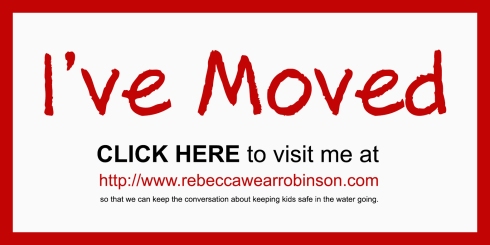I was getting in my swim while my daughter had her lesson on Sunday and was watching the parent-tot class in the kid pool. Mostly toddlers, average age probably 18-24 months, and you saw the whole gamut of personalities in that group of 10 kids. One petite little girl was leaping into the water without inhibition or fear. One little boy was far more interested in deconstructing the safety cone blocking off the slide area. Many of the kids were cautiously trying what the teacher was encouraging, although several looked deeply suspicious. One little boy was clinging to his dad, who was having that oh-so-familiar internal battle with himself. “Why is my child the only one who is crying and is climbing me like a ladder to get out of the pool? What am I doing wrong? Is something wrong with him?” battling with “I just want my baby to be safe and I hate to see him afraid and I’d love to just leave, but I know he needs to do this, but should I do this, or maybe it’s too soon?”
The important lesson – every single one of those parents had realized that teaching their child to enjoy the water safely and to begin learning basic swimming skills when they are young is important, and even potentially life-saving. And that dad knew that being there, being calm and supportive, was going to help his little one learn and understand he was safe, if dad was there watching over him.
We aren’t the only ones who go through this anguish. Who knew that otters needed to be taught to swim? And how to be safe? I often watch the otters at the zoo and wish I could swim like them, now I know how they learned – just like we do – with a parent patiently, consistently, age-appropriately teaching, encouraging and watching!
